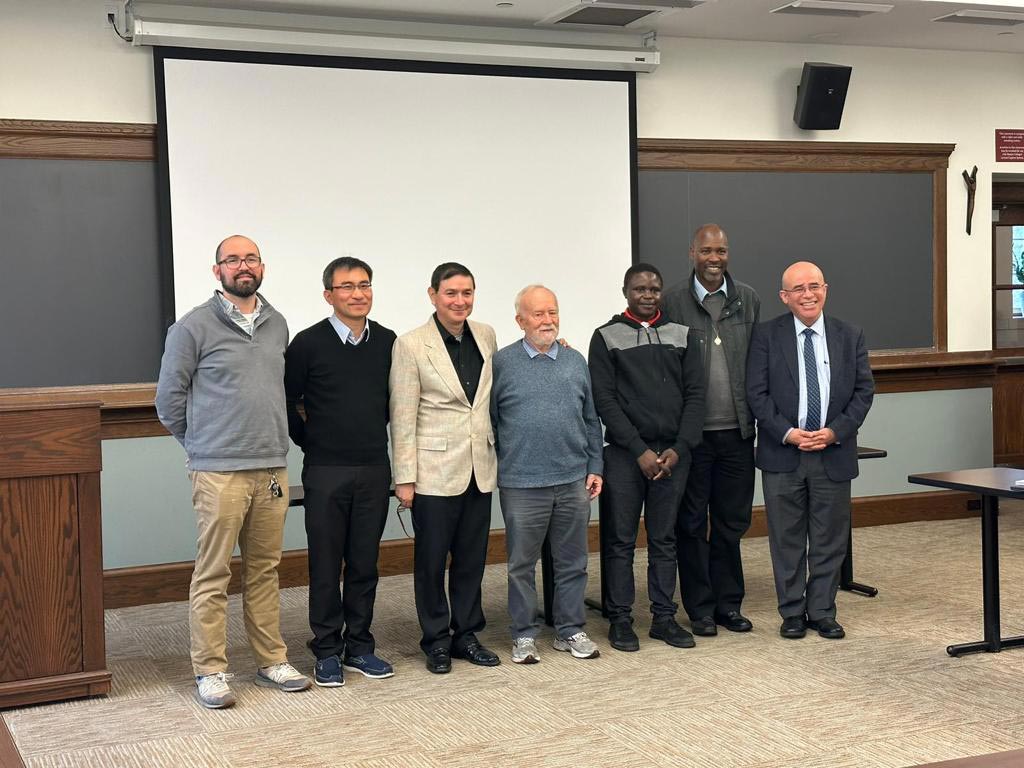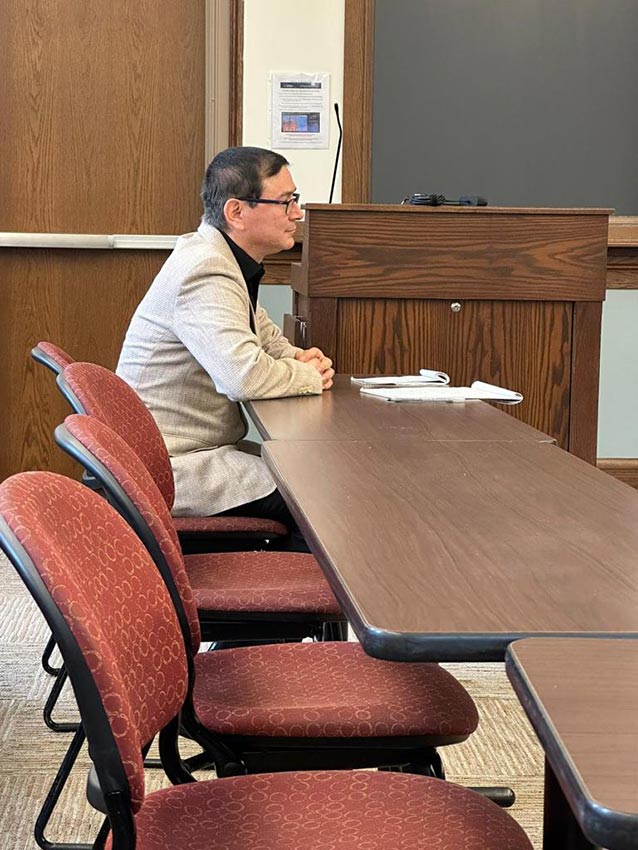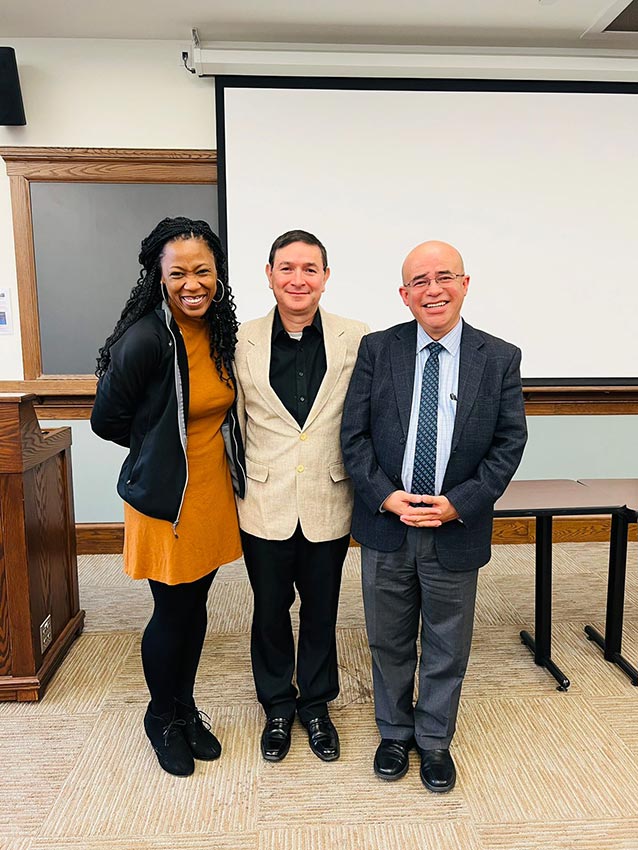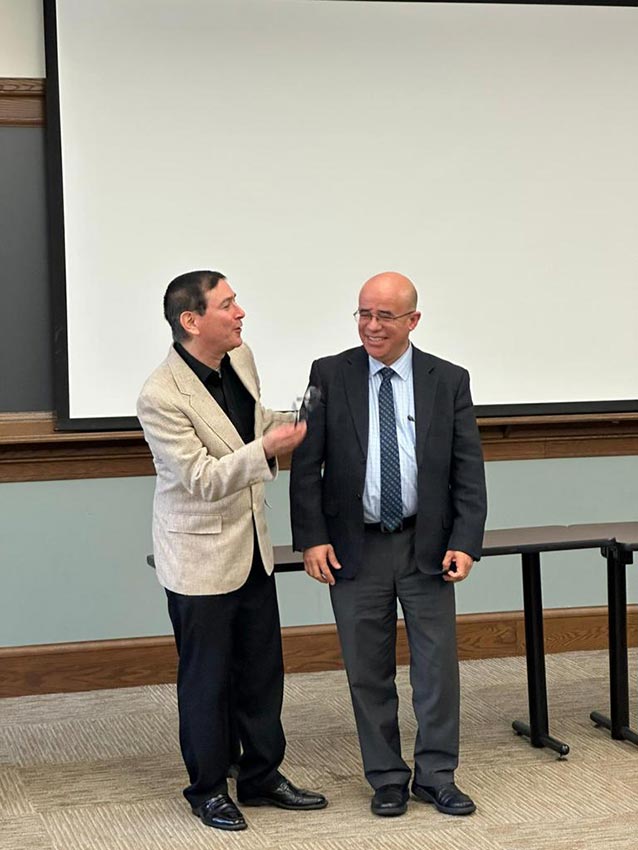Last Friday, October 20, Br. Hugo defended his thesis at STM. He received distinction. Congratulations and we wish him the best in his application with the Latino community.
Fundamental Elements of the Development of Hispanic Lay Leadership and Discipleship Formation Program
Theology teaches that studying God, the Church, the human being, and the world is insufficient if it cannot find the Spirit’s presence inspiring the Christian community’s action in pastoral activities. In theology, theoretical knowledge only makes sense if it applies to the transformation of people in the light of the Scripture. These ideas of Pope Francis motivated me to investigate the fundamental elements needed to construct a discipleship leadership formation project that could ministerially help the laity discover the importance of their vocation and mission as disciples of Jesus for the extension of the Kingdom of God. The thesis accomplishes its purpose by presenting these elements, which encompass discipleship and its theology.
Chapter one reiterates the theology of discipleship as the cornerstone of the Hispanic Laity Formation Program. Guided by faith formation of discipleship encapsulating the merging of a layperson’s identity and the identity of Christ, being called by Jesus to discipleship, and becoming disciples within the margins of joy, practicing the theology of discipleship can teach the laity the following; the first requirement on the road to Christian identity is patience, devotion, and love. Second, following Christ is not merely a concept; it is a loving experience with the risen Christ, who exhorts us to embody the Gospel in our daily lives. Third, comprehending that the goal of Christian discipleship is to make joyful, marginalized disciples who share their faith with everyone and everywhere.
Chapter two successfully describes the multifaceted leadership styles that the Hispanic Laity need to learn from the formation program. Transformative, Charismatic, and Servant leadership rooted in the scripture are transformational to the Hispanic laity as commitments to change, creating authentic and motivational connections with others, and service to others. The chapter made the argument that lay leadership development can only be accomplished through a continuous holistic and pastoral formation program that involves self-awareness, generosity, humility, personal and Christian experience, and discourse and engagement with one’s self, others, and God. The harmony between God’s will and the layperson’s desire to truly follow Jesus as Savior is what makes this biblical approach to leadership so beautiful.
Chapter three of the thesis introduced a much-needed Pedagogical-Pastoral Model as a fundamental element of constructing the Hispanic Formation in lay leadership. It expresses the importance of a pedagogical-pastoral model in illuminating the laity’s journeys as called disciples and missionaries of Christ. Driven by purpose, foundation, an integrative curriculum approach, pastoral participants, a process, methodology, and evaluation principles, the PDML model is a road map for the lay ministry’s mission to spread the Kingdom of God. It is reiterated that these elements of the PDML model must be put into practice and internalized in detail to allow for a discipleship that strengthens a relationship with Christ.
The final chapter identifies key pastoral tenets for a theology of laity discipleship as a continuous and all-encompassing process. The significance of these principles is to educate the laity on how the Bible and Catholic doctrines relate, as well as on the contributions of theologians and even laypeople who have already undergone discipleship training. This formation should always be enriched not only by the Word of God, the magisterium of the Catholic Church, the ecumenical dialogue with theologians, Catholics, and no-Catholics (ecumenical discipleship) but also by the practical wisdom of the laity who have experienced the joy of being a disciple of Jesus (Discipleship from the margins) as a call from God to holiness in their lives.
This thesis has therefore discussed the fundamental elements necessary to develop a Hispanic Lay Formation Program; discipleship and its theology, an approach to transformational, charismatic, and servant leadership, a viable pastoral-pedagogical model, and pastoral principles or ministry. A recurring theme throughout the thesis is the relationship between discipleship and ministry as one of the best keys to understanding the theology of ecclesial ministry. This theology should be understood from an ecclesial discipleship model based on the following principles. First, the ecclesial ministry is a call to personal transformation to live authentic discipleship. Second, it requires ecclesial discernment to recognize it as a genuine charism of the Holy Spirit. Third, the formation of the laity is key to building an ecclesial ministry which must be rooted in the Trinity. Fourth, it must be authorized and recognized by the Church. Finally, through a ritual form, it prepares the baptized believers who are called to a new ministerial relationship in service to the mission of the Church. These five principles are essential for a formation in the ecclesial ministry of the Latin laity whose key is to discover their vocation to be disciple-ministers from the two main bases for building a theology of lay ecclesial ministry: discernment of a call to lay ecclesial ministry and fostering intercultural competencies. Therefore, future research needs to focus on explaining and clarifying the relationship and differences between being a disciple and an ecclesial minister.



